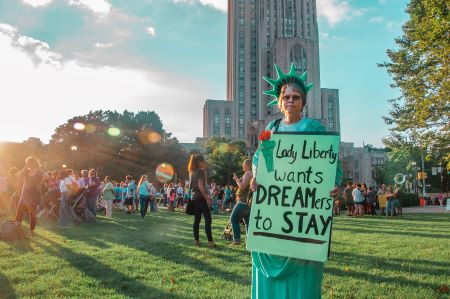Eliminate rent burden: If renters weren’t paying too much rent, they could spend more on family needs and in the community.
Insights & Analyses
- The overall gain in disposable income renters would experience nationwide if they paid only what they could afford on housing has grown from around $89 billion in 2000 to $173 billion in 2022.
- Renters would have $8,140 additional disposable income per year on average if they were not rent burdened; Asian American renters would have $11,100 more in disposable income.
- Among states, renters in Louisiana, West Virginia, and New York would see the highest gains in disposable income if they paid only what they could afford on housing while renters in New Hampshire, Alaska, Idaho, and Utah would see the smallest gains.
- Disposable income for renters in Madison, WI and New Orlean, LA would increase the most out of the 100 largest US cities if no renters were rent burdened.
Drivers of Inequity
Lack of affordable housing production coupled with skyrocketing housing prices and stagnant wages for low-wage workers has caused the housing burden for poor Americans, particularly low-income renters, to increase following the recovery from the 2008 housing crisis. People of color are over-represented in these populations; this is due in part to a long history of racial segregation forged through practices such as racially restrictive housing covenants, redlining, and discriminatory lending. People of color are also more likely to rent than own a home because historical dispossession and discrimination have prevented accumulation of wealth and upward mobility.
Strategies
Grow an equitable economy: Policies to ensure affordable housing for all
- Raise funds to increase the supply of affordable homes through housing trust funds and housing bonds.
- Require or incentivize the inclusion of affordable housing within new developments using inclusionary zoning, community benefits agreements, density bonuses, or other tools.
- Preserve affordable rental housing, particularly apartments located near job centers, public transit, and services.
- Ensure strong tenant protections to prevent displacement, such as just cause eviction ordinances, anti-harassment policies, low-cost legal assistance, and rent control.
- Implement a renters' tax credit to help reduce rents for low-income families.
- At the federal level, create a rental subsidy program for rent-burdened tenants, enforce and expand the Fair Housing Act to ensure fair housing, expand the national Housing Trust Fund to increase investment in affordable housing production.
Strategy in Action
Oregon strengthens eviction and rent increase protections. In 2019, Oregon became the first state to pass a rent control bill. Senate Bill 608 limits landlords’ ability to increase rent to just 7 percent per year, plus the annual change in the consumer price index. The bill also requires landlords to give a reason for evicting tenants who have been living in their unit for over one year. If the eviction reason is not due to lease violations, the tenant may also be entitled to one month of rent compensation from the landlord. As half of all renters in Oregon spend more than 30 percent of their income on rent and utilities, this policy change marks an important step toward addressing the statewide housing crisis. Learn more.

Resources
- Reports: Housing Policy Guide; Racial Disparities Among Extremely Low-Income Renters; Who Has Housing Affordability Problems? Disparities in Housing Cost burden by Race, Nativity and Legal Status in Los Angeles
-
Data: Out of Reach; Paycheck to Paycheck; Mapping Inequality: Redlining in New Deal America
- Toolkits: #OurNeighborhoods


